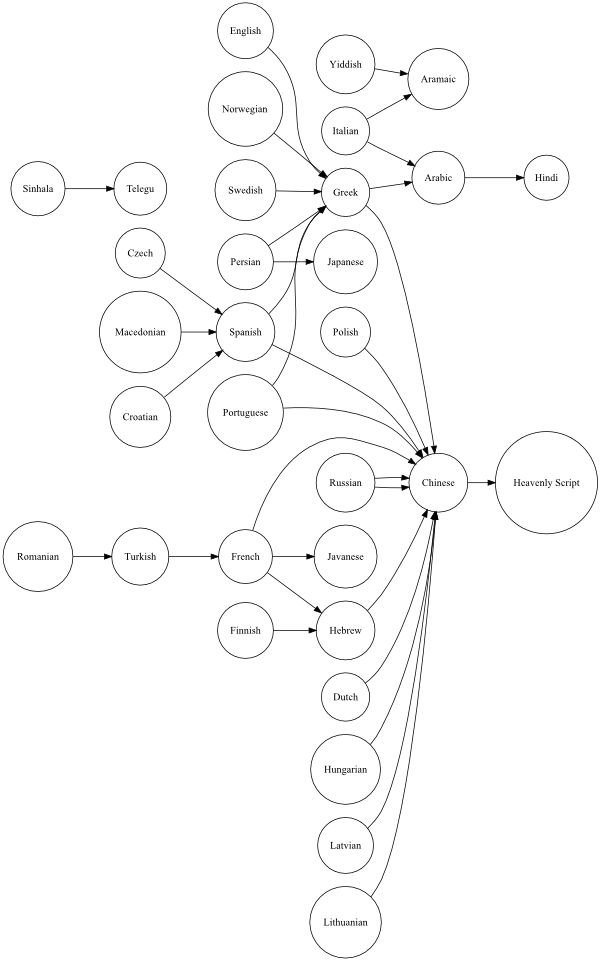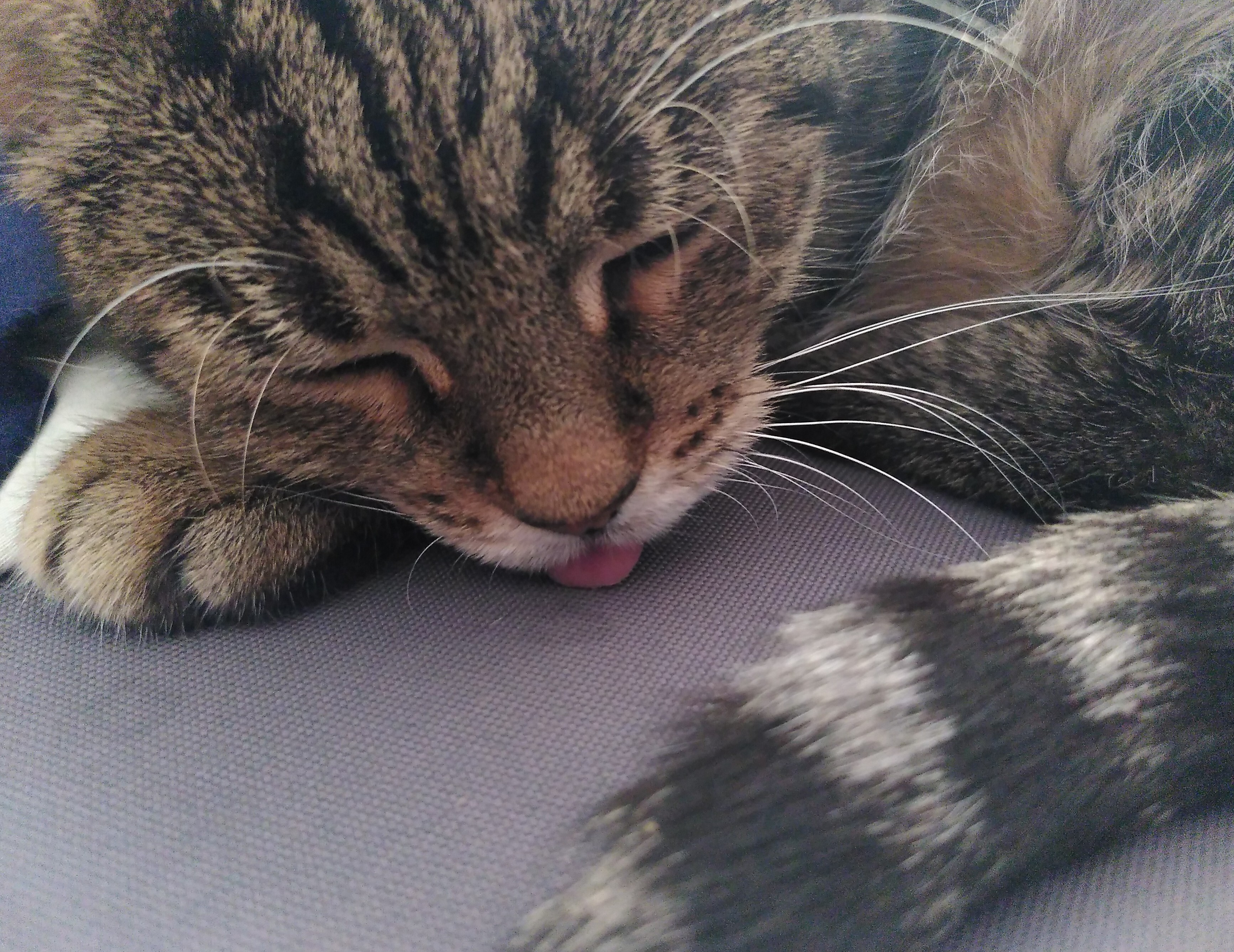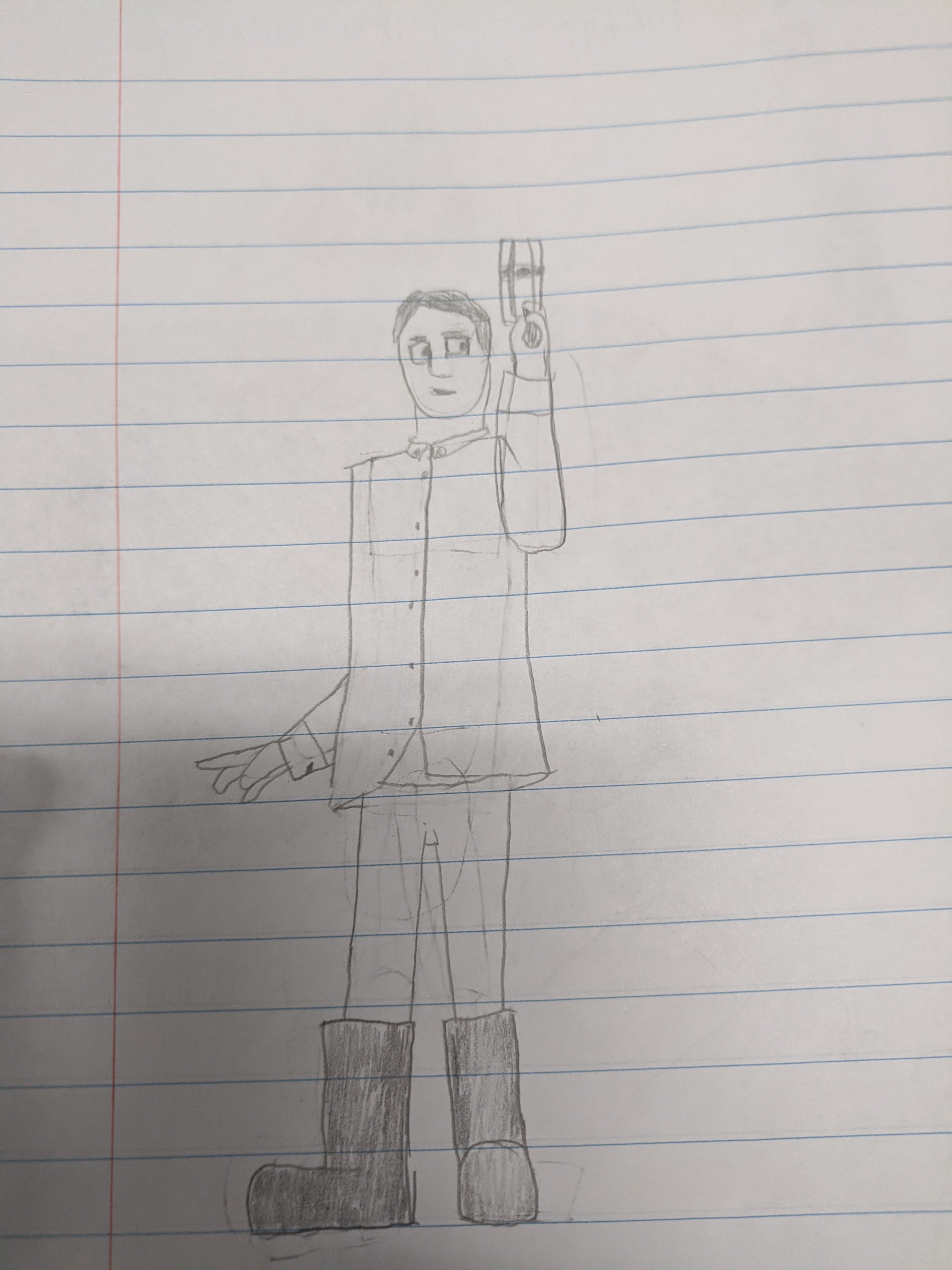In Finnish we have “kissanristiäiset” (literally means a cat’s christening), which means some trivial and meaningless celebration/event.
Germany, Hesse. We have some … interesting regional idioms Examples:
-
Furz mit Krücken (a fart with crutches) - a really stupid idea that’s bound to fail
-
Eine Gardinenpredigt halten (to hold a curtain preach) - to rant / tell someone off in a loud and angry way
-
Das macht den Bock auch nicht fett (that doesn’t fatten up the billy goat either) - somehing doesn’t matter anymore
-
Das Kind ist in den Brunnen gefallen (the child fell into the well) - something bad has already happened, intervening isn’t possible anymore, the only option is to deal with the consequences.
-
Besser als in die hohle Hand geschissen (better than shitting into your hollow hand) - better than nothing
-
Auf dem Zahnfleisch kriechen (to crawl on your gums) - to be totally exhausted
-
Klappe zu, Affe tot (hatch closed, monkey dead) - this is the end of the discussion
-
Passt wie die Faust aufs Auge (like a fist fits the eye) - a perfect match. Another variant is “Passt wie Arsch auf Eimer” (fits like a butt on a bucket)
-
Eine Laus über die Leber gelaufen (A louse walked across your liver) - to be annoyed and failing to hide it
-
Einen Besen fressen (to eat a broom) - exclamation of disbelief (“If that is really true, I’m going to eat a broom”)
-
Der hat Haare auf den Zähnen (he has hair on his teeth) - he is stubborn and loud about it
-
Das Leben ist wie’s ist, wer nen scheppen Arsch hat, hat nen scheppen Schiss. (Life is life, a person with a sideways arse poops sideways turds) - stop complaining about stuff you can’t change. “Schepp” is “schief”, but said with a dialect.
-
Wie der Och’s wenns blitzt (like an ox when lightning strikes) - to stare dumbfounded into space, usually because you don’t understand something / are surprised
-
Einbildung ist auch eine Bildung (delusion is also a form of education) - when someone is dumb but so full of themselves that they don’t realize HOW dumb they are. “Einbildung” and “eine Bildung” sound very similar.
-
Wer im Glashaus sitzt, soll nicht mit Steinen werfen (if you sit in a glass house, don’t throw stones) - don’t gossip about others when you’re also guilty of the thing you want to gossip about
-
Am Arsch die Waldfee (by the butt of the forest fairy) - “This is ridiculous and I refuse to believe it” Another variant is “Am Arsch die Räuber” (by the butts of the robbers)
-
Himmel, Arsch und Zwirn! (heaven, ass and twine!) - for fuck’s sake!
-
Herr, schmeiss Hirn vom Himmel! (Lord, throw a brain down from the Heavens!) - when you’re frustrated with someone really stupid. Another variant is “Herr, schmeiss Hirn vom Himmel - oder Steine, Hauptsache du triffst!” (Lord, throw a brain down from the Heavens - or rocks, as long as you hit your mark!)
-
Nicht mein Affe, nicht mein Zirkus (not my monkey, not my circus) - This is not my responsibility, go ask someone else
-
Wie ein Affe auf einem Schleifstein (like a monkey sitting on a grindstone) - you’re sitting weird
-
Das gleiche in Grün (the same, but green) - two things are essentially the same
-
Zum Mäusemelken (like milking mice) - something is complicated and frustrating
-
Ich hab schon Pferde vor der Apotheke kotzen sehen (I’ve seen horses barf in front of a pharmacy) - I’ve seen weirder things in my life
I’m from Hamburg and I know the majority of these as well, but some are a bit different. Here’s some variations on yours:
- Das macht den Kohl auch nicht fett (that doesn’t fatten up the cabbage)
- Herr, lass Hirn vom Himmel regnen! (lord, let it rain brains!)
- Wie ein Schluck Wasser in der Kurve (like a sip of water turning a corner) - sitting very lazily/not upright
Are you sure the first one is about cabbage and not the politician?
No I am not sure actually, it might very well be! Both would make sense conceptually but I never actually looked into which one it is
Also german. Somewhat sure it’s about good old Helmut.
Is “das ist mir wurst” a thing? That’s one I learned from my MIL (from Bavaria).
I also have a special love for the word “Mietschuldenfreiheitsbescheinigung”. And yes I had to Google the spelling lol.
Yup that is me sausage is a german thing.
It’s a thing in Hesse, too ;) you can also say “Ist mir Schnuppe” or “Ist mir schnurz”, which essentially mean the same thing (“I don’t care”) but the literal translation is different. “Schnuppe” is the burnt end if a candle wick, but I have seriously no idea what “schnurz” is supposed to be, lol.
We say “das ist mir Wurst” in Hamburg too, so it must be a pretty universal saying.
Is Mietschuldenfreiheitsbescheinigung used in a saying? The only meaning I can think of is the literal one (attestation of no rental debt)
You are correct, it’s the attestation, not an actual saying. I just think it’s wild how many words were shoved together to make this abomination of a word.
It’s called a composite word. English has them too, like schoolbus, but German just went crazy with them. Feels like every other word is a composite
Flugzeug = flying stuff = plane
Glühbirne = glowing pear = light bulb
But some examples just take it on a whole other level. Like “Rindfleischetikettierungsüberwachungsaufgabenübertragungsgesetz”, meaning “Beef labeling supervision duties delegation law”.
TBF English has words like “backpack”, which then get turned into a verb like “to go backpacking”.
But in some Germanic language like German (Dutch too), you should write all words that describe one noun together as one, which leads to words like huttentuttententoonstelling.
-
Aussie here. Our entire dialect is one weird idiom.
Czech has a lot of them!
Dělá z komára velblouda.
He’s making a camel out of a mosquito.
= He’s making it seem like a bigger problem than it is.Nemaluj čerta na zeď.
Don’t draw an imp on the wall.
= Don’t be pessimistic. Don’t assume the most catastrophic scenario.Jsem tam pečený vařený.
I’m there baked cooked.
= I go there a lot.Dala mi košem.
She hit me with a basket.
= She dumped me, or rejected my (mostly romantic) offer or advances.Dělá jako by se nechumelilo.
He’s pretending like it’s not heavily snowing.
= He’s pretending like something doesn’t concern him. He’s nonchalant about a serious situation.Kápni božskou!
Drip the divine! (Object implied. Probably “the divine truth”)
= Tell the truth. Spill it.Láme to přes koleno.
He’s breaking it over his knee.
= He’s forcing it.Natáhnout bačkory / brka, zaklepat bačkorama
To stretch (one’s) slippers / quills, to tap with (one’s) slippers
= To die. To kick the bucket.Padli jsme si do oka.
We fell into each other’s eye.
= We hit it off.Rozumí tomu jako koza petrželi.
He understands it like a goat understands parsley.
= He doesn’t understand it.Přišel jsem s křížkem po funuse.
I came with a little cross after the funeral.
= I came too late.Házím perly sviním.
I’m throwing pearls to swines.
= I’m doing good work or acts of kindness that go underappreciated.And I could go on :)
In Dutch we have one similar to dělá z komára velblouda, we say “van een mug een olifant maken” (making a mosquito out for an elephant), it means the same!
Also one similar to přišel jsem s křížkem po funuse; “mosterd na de maaltijd” (mustard after the meal) means something mentioned or brought too late, when it was no longer necessary.
I wonder how many languages have sayings like this.
In English, we have “making a mountain out of a molehill”.
Ah, I’ve never even heard of that one in English!
That’s interesting!
Some of these are very interesting to me because very similar ones exist in German! Especially “einen Korb geben” (to give a basket) has me intrigued. Does this phrase come from a social norm to give a basket of something to someone you reject?
Thanks for sharing!
It’s very interesting indeed, I tried to research the origin of the idiom but was unsuccessful 🤔
This is fascinating!
I’m also curious what causes idioms to be shared across languages, like “pearls before swine” (presumably this is shared because of the biblical verse, Matt 7:6)
I could hear someone with a very (US) Georgian accent saying “He understands that like a goat understands parsley”.
“I don’t know where it comes from, but it’s tasty.” – the goat
“Drip the divine”
I love that Czech has a phrase for “spill the tea” but way cooler
Like pearls to swine is a very seldom used idiom in English too, used very rarely and often in archaic/medievel/fantasy settings. Very interesting 2 languages have a shared idiom so neatly translated.
It’s from the Bible.
“Give not that which is holy unto the dogs, neither cast ye your pearls before swine, lest they trample them under their feet, and turn again and rend you.” – Matthew 7:6
We fell into each other’s eye, sounds so sweet, romantic even. I might use that haha
Lithuanian here.
"Neperšokęs griovio, nesakyk ‘op’“ (Don’t say ‘op’ before you jump over the ditch) Don’t brag about doing something before you did it.
“Bala nematė” (The swamp didn’t see) When you are facing a dilemma and decide to just do something.
“Man šakės” (It’s the pitchfork for me) Basically means “I’m fucked"
“Pagauti kampą” (To catch the corner) To understand something.
“Stogas važiuoja” (The roof is going away) Used to refer to someone who’s going crazy.
“Pilstyti iš tuščio į kiaurą” (To pour from an empty one into a leaky one) to speak in meaningless statements.
“Pjauti grybą” (To cut the mushroom) to talk nonsense, or do meaningless tasks.
“Nevynioti žodžių į vatą” (Not to roll words into cotton wool) to speak directly and honestly.
“Palikti ant ledo” (To leave someone on ice) To ghost or abandon someone.
“Aiškintis santykius” (To clarify relations) To have a fight.
“Rodyti ožius" (To show the goats) To act stubborn.
Damn. You go me first. I will complement:
“Lįsti į akis” (to get into eyes): To annoy other person.
“Arabus pūsti” (to blow Arabs): To tell fairy tales (to lie).
"Neperšokęs griovio, nesakyk ‘op’“ (Don’t say ‘op’ before you jump over the ditch) Don’t brag about doing something before you did it.
So a much nicer way of saying “Here hold my beer and watch this”
In Australia people who mean business say “I’m not here to fuck spiders.” I think that’s just wonderful.
In America we express suffering beyond words by saying we’re “living the dream”. And the Brits think we have an irony deficiency.
You mean sarcasm
-a Brit
Exactly, thanks
Yeah, right. They meant sarcasm.
In France we’re not here to fuck flies
We don’t mind others’ onions
When someone is about to get late somewhere, we say « Tu vas te faire appeler Arthur » (literally « You’re gonna be called Arthur »)
This expression came during the German occupation, when soldiers would shout « Acht Uhr » (« eight hour ») to people during curfew. It sounds like « Arthur » in French.
Last one. « Faire le Jacques » (« acting like Jack ») means « playing dumb »
That last one reminds me of something I heard on the Mighty Boosh. Vince called someone a “Jack of Clubs” for hitting him
TIL about the origin of « Tu vas te faire appeler Arthur »
Ok next alt account I make is going to be named fly fucker
Idk the spiders looking are looking mighty fine
Shut up :)
In Germany, we have:
“To not have all mugs in the cupboard anymore” (“Nicht mehr alle Tassen im Schrank haben”) which translates to doing something incredibly stupid/crazy
“To search yourself a wolf” ("sich einen Wolf suchen) which means to search for something extensively and in the end unsuccesfully.
“To add one additional tooth” (“einen Zahn zulegen”), meaning to hurry, to do something faster.
“To defeat your inner pigdog” (“seinen inneren Schweinehund besiegen” - to get over one’s lazyness, to stop procrastinating
“To add one additional tooth” (“einen Zahn zulegen”), meaning to hurry, to do something faster.
Related to the teeth of gears, I assume?
Originally yes but I doubt many people know that it came from (boat?) gears…
(American) English ones that come to mind:
- it’s raining cats and dogs (it’s pouring rain)
- I really shit the bed on this one (I fucked up really bad -not sure how widespread this is)
- a turd in the punch bowl (someone is singlehandedly ruining something, usually an event)
- don’t blow smoke up my ass (be honest with me)
- a walk in the park (pleasant/easy task)
“Raiining cats and dogs” is not of American origin. The precise origin is unknown, but the first recorded uses are British, dating from the early to mid 17th century (Earliest uses are raining “dogs and cats” and “dogs and polecats”.) although it’s possible the phrase is significantly older than this.
The phrase is well known and widely used in the UK, and I doubt anyone here would consider it an American phrase.
“Raiining cats and dogs” is not of American origin.
Nobody said it was of American origin. You’re putting words in the parent commenter’s mouth and then choosing to argue against them. That’s why people take issue with your comment. If you want to contribute to the conversation without coming off as argumentative then frame your point as adding to the conversation not as an argument against something that wasn’t said.
Nobody said it was of American origin
I know. Go back and read what I wrote. The only argument here was started by you. The only person putting words in others’ mouths is you.
The phrase is well known and widely used in the UK, and I doubt anyone here would consider it an American phrase.
Yes, and it’s used in many other places in the world that isn’t America either. That doesn’t change the fact that it is widely used in America. You may not have intended for your comment to come off as argumentative. But it did. You’re the one that joined the conversation by explaining that it’s not an American saying. It is a common saying in American English which is all the parent comment asserted.
And I didn’t assert otherwise. Perhaps improve your own reading comprehension before wading into a discussion of the English language.
Language is alive and I can’t see anyone requesting origins specifically. Phrases like this can be part of 2 cultures at once. You even share the same base language, and don’t even have hard proof one way or the other but still took the time to say ‘nay’. Pretty boring…
Language is alive
Where did I say it wasn’t? But language being alive doesn’t change history – the phrase was used by British writers before the USA even existed.
and I can’t see anyone requesting origins specifically.
So? I offered the origin as it was presented alongside a number of phrases that are of American origin, and that one stands out as not (also as being suspected far older in origin than the others). I’ve simply added some additional information to the discussion. If you find it “boring”, you are free to ignore it.
I didn’t request your reply, yet you still wrote it.
Phrases like this can be part of 2 cultures at once.
Where did I say it couldn’t? I merely stated that the phrase was not of American origin. I didn’t say it wasn’t used in the US, or that the UK somehow has some special exclusive licence to it.
and don’t even have hard proof one way or the other
I didn’t post sources because I was short on time, but here, have some… (as I apparently now have time to waste…)
- “Dogs and Cats rain’d in showre”, from the poem Upon a Cloke in Olor Iscanus (1651) by Henry Vaughan
- “…and it shall raine… Dogs and Polecats”, from The City Wit, or, The Woman Wears the Breeches (1653) by Richard Brome
- “it should rain Dogs and Cats”, from Don Juan Lamberto: or, a Comical History of the Late Times (1661) by Thomas Flatman
- “Made it rain down dogs and cats”, from Cataplus, or Æneas, … (1672) by Maurice Atkins
- “When it rains Dogs and Cats in Hell” from Maronides; or, Virgil Travesty, … (1678) by John Phillips
- “raining cats and dogs”, from A Description of a City Shower (1710) by Jonathan Swift
- “rain cats and dogs”, from Complete Collection of Genteel and Ingenious Conversation (1738) also by Jonathan Swift
You will note that these are all British works by British authors. I can provide even more if you need them.
While the ultimate origin is unknown (there are many theories), any claim to it being American in origin is surely nonsense. There is no evidence for this at all. If you have some, please provide it.
What proof have you provided? Indeed, what has your comment added at all to the discussion? You could have looked up those sources and extensive etymological research on Google with less effort than you took to write your comment.
Pretty boring…
And what about your own comment? It adds absolutely zero additional information to the conversation, is rude, and you clearly misconstrued and misinterpreted my comment (apparently with the most negative interpretation possible), without even bothering to research anything for yourself.
Personally, I think some may find it interesting that a phrase they might have thought was of modern American origin is actually from another country and of far more ancient origins they expect. To me, that is interesting. If it isn’t to you, why do you bother to read and comment?
In the future, I suggest you simply ignore comments you find boring and move on instead of posting insulting low-effort replies.
All of those are widespread in the northeast US if not across the entire US.
I’ve never heard number 3. Never lived in the northeast US though.
don’t blow smoke up my ass (be honest with me)
alternative form: don’t piss on my leg and tell me it’s raining
“Someone screwed the pooch” - Someone made a big mistake, same as the “shit the bed” idiom.
Both are also common in Canada. Edit, actually every one of the parent’s idioms are common in Canada to varying degrees.
A great Australian one that doesn’t involve spiders or cunts is “tell ‘im he’s dreamin’”, usually said in a real broad accent (you can change the pronouns around what more matters is the way you say it). Usually used whenever someone’s asking too much money for something but can also be used for when someone’s asking for too much in general and basically means “are you fucking kidding me that’s way too expensive”. It’s from a great movie called The Castle. It also gave us the saying “[this is going] straight to the pool room” meaning “shit this is really nice thanks” (because the pool room is where you put your trophies and whatnot) but I think that’s a little less common.
On the other side of the globe, Norway uses “Texas” to mean “crazy weird shit”. There’s also “kamelåså” which generally means “unintelligible (like a Danish person)” which is from this great comedy sketch about Denmark that’s so good NRK decided they had to translate it into English just so people could make fun of Danish internationally (The untranslated bits are just danish sounding gibberish)
Can you use Texas in a sentence? Live here and can’t wait to use it!
Here in Colombia they say “don’t give papaya”. It basically means don’t give thieves an opportunity to steal from you. Shit like ‘don’t leave your bike unlocked while you grab a soda from the store’. If you do leave it out it’s “giving papaya”. No clue where it comes from.
Also when people split the cost of something it’s called making a cow. “Do you guys want to make a cow for some beers and food? Yeah let’s do it”
Ireland and particularly the Irish language (Gaeilge) has a lot of them.
My favourite one in Irish is
“Tá mé ar mhuin na muice” which literally means “Im on the pigs back” This means that you are well or that you are having a good day etc. Sometimes people will jokingly say this in English too, usually to friends family etc
“How are you today?” “I’m on the pigs back”
There’s loads of other ones too that people say, many of which probably have roots in the Irish language but we don’t know since the Brits made it illegal to speak Irish during their rule of Ireland.
“You’re gas!” They are very funny. Sometimes used in addition to craic (craic, pronounced Crack, is an Irish word for good natured shenanigans or fun) You could say “They are gas craic all together” Meaning this person or people is exceptionally funny or enjoyable to be around.
Some others
“I will in me hole” I will not do that
“I will, yeah!” I will not do that
“It’s mighty tack” Of good quality
“Ah sure, you know yourself now” Kind of like saying ‘thats how it is I guess’
“If there was work in the bed, he’d sleep on the floor” This person is very lazy
“She’d pull up floorboards looking for pipe” This woman is promiscuous/ horny
“Tis steep enough” Said when commenting about the price of something being high
“There’s an aul nip in the breeze” Said if it is somewhat cold outside
“Tis fierce close” It’s warm/ humid outside
“It’s Baltic” The weather is very cold
“It’s a massive day” It’s sunny and pleasant outside
“He’s a bit of a black guard” (black guard, pronounced ‘blaggard’) This person is silly, funny or may not be trust worthy
“I battered him” I physically beat him up
“He’s an awful messer” This person is playful, foolish or silly
“I’m wrecked” I’m tired
“I’m tipping away” Usually said in response to ‘how are you?’ It means I’m doing okay, taking it easy
“How’s she cutting?” How is it going/ how has your day been
“Now we’re sucking diesel!” Now we are doing well! Can sometimes be used as an exclamation when something goes well. If you fixed a problem or are making good progress.
“I’d do be at that the whole time” I do something regularly or habitually. Sometimes shortened into fewer sounds/syllables, sounding something ‘I’d-d’be at dat the whole time’ though that would usually be an older person with a very strong accent. Most Irish people these days would have a comparitively mild accent.
“Tis pure shite” It’s very bad/ of poor quality
“A sniper wouldn’t take her out” This person is unattractive
“He’d get up on a gust of wind” This person is very horny/ promiscuous
“I’m as sick as a small hospital” I am very unwell
“I’m as sick as a plane to Lourdes” Also means I am unwell. Older people like to travel to places of religious significance hoping for a miracle to heal them if they are sick or unwell.
“I’m as shook as a hand at mass” I am very stressed/ tired/ worn out. Comes from ‘offering a sign of peace’ in Catholic mass, where you shake the hands of everyone sitting next to you, in front and behind you.
There’s a ton of others. They can also be quite regional. I’m from Cork in the south of the country, so these ones tend to be more popular here. There are other ones more commonly used elsewhere in Ireland.
In Denmark we have a bunch of weird ones: When there isn’t a problem: “There is no cow on the ice”/ Der er ingen ko på isen
When you’re helping someone when it would be better they did it themselves you’re doing them “a bears favor” / en bjørnetjeneste
When you want it both ways but cant: “You want to blow with flour in your mouth” / blæse med mel i munden. This always made more sense to me than the english, you cant have your cake and eat it too.
When something is complete gibberish, it “sounds like volapyk” / lyder som volapyk. Volapyk is an actual made-up language like esperanto. incedentaly the same expression also exists in Esperanto
and i’m sure there is more
When you want it both ways but cant: “You want to blow with flour in your mouth”
Oh I like this one
In French we would say « You can’t have the butter and the butter’s money »
One usual extension of the expression is « You can’t have the butter, the butter’s money and the creamer’s butt »
When there’s no reason to hurry « y a pas le feu au lac » (« the lake isn’t on fire »)
“To get the cow from the ice” (“Die Kuh vom Eis kriegen”) is a german phrase meaning to solve an urgent problem.
This always made more sense to me than the english, you cant have your cake and eat it too.
I always had problems with that idiom in English, until someone pointed to me that it’s backwards just because it sounds better, it means “You can’t eat your cake and have it too”, i.e. if you eat the cake you don’t have it anymore, so you can’t both have and eat it at the same time.
This idiom confused me for the longest time, because I use “have” and “eat” very interchangeably. “Are you going to have dinner?” etc. I didn’t see that, rather, they meant “have” as a synonym for “keep”.
And yeah, it’s definitely backwards. “Have” doesn’t suggest “will have”, it’s a present term only. I have a cake, can I eat it? Yes. Switching the order makes more sense. Furthermore, I think “keep” at least suggests long term.
I propose “You can’t eat your cake and keep it too”
Yet still, who ever eats a whole cake? I definitely keep some for later.
Have and eat are both present looking to the future in this insane. Like have it in the future if you eat it now. It does make sense, but I do understand your gripe
I remember learning it as a semi-historical idiom, that nice white cakes and frostings could be expensive, so poor people would pay to have a pretty looking cake that’s mostly for show that’s like a prop or for a nice tasting cake that doesn’t look grand or large. Old guy could have been telling a tale though.
When something is complete gibberish, it “sounds like volapyk” / lyder som volapyk.
In Dutch we say “This might as well be Turkish”, if something makes no sense.
If I recall correctly, I Turkish they call complete gibberish “Chinese”, and Mandarin just straight skips to “ethereal writing”.You can definitely see which one’s the more difficult language, here.
Bears Favor exists in German too (jemandem einen Bärendienst erweisen)
In Czechia we have some interesting phrases about other countries: It’s a Spanish village to me - I don’t understand it. (For example I don’t know how to program, it’s a Spanish village for me.) He drinks like a person from Denmark - He drinks a lot of alcohol.
like the english ‘its greek to me’ i suppose (but better)
In English, we say “it’s Greek to me”; in Greek they say “it’s Chinese”; and in Chinese they say “it’s moon language.”
Exactly!
It appears many languages have an equivalent to this, and many like English, point to Greek with “It’s Greek to me” - and the Greek say “it’s Chinese to me” and apparently the Chinese say “it’s heavenly script”. Here’s an interesting chart showing where many languages point for something incomprehensible. Source

Wow, very cool chart! I think in Germany, they say it’s Bohemian village (which means Czech village), but I’m not a German speaker.
Not mine but I had a Dutch professor who would say “it’s like washing duck’s feet” to refer to something that was a pointless exercise or wasted effort. I always thought it was funny but can’t find anything on the Internet about it now so perhaps it’s not very common.
“食西北風” (Cantonese, “eat north-west wind”) or “喝西北風” (Mandarin, “drink north-west wind”). It originally means having no food or drink, in other words, starving.
The meaning of this phrase is further extended to “running out of business”.
This is also partially where my username came from.
My favourite Aussie idiom is “We’re not here to fuck spiders.” Meaning that we are trying to do some work, stop fucking around.
In Canadian “fucking the dog” means slacking off, especially at work. This is not the same as “Screw the pooch” which means to fuck something up big time.
I love this, absolutely using at work! Thanks!
wait, your not? well






















